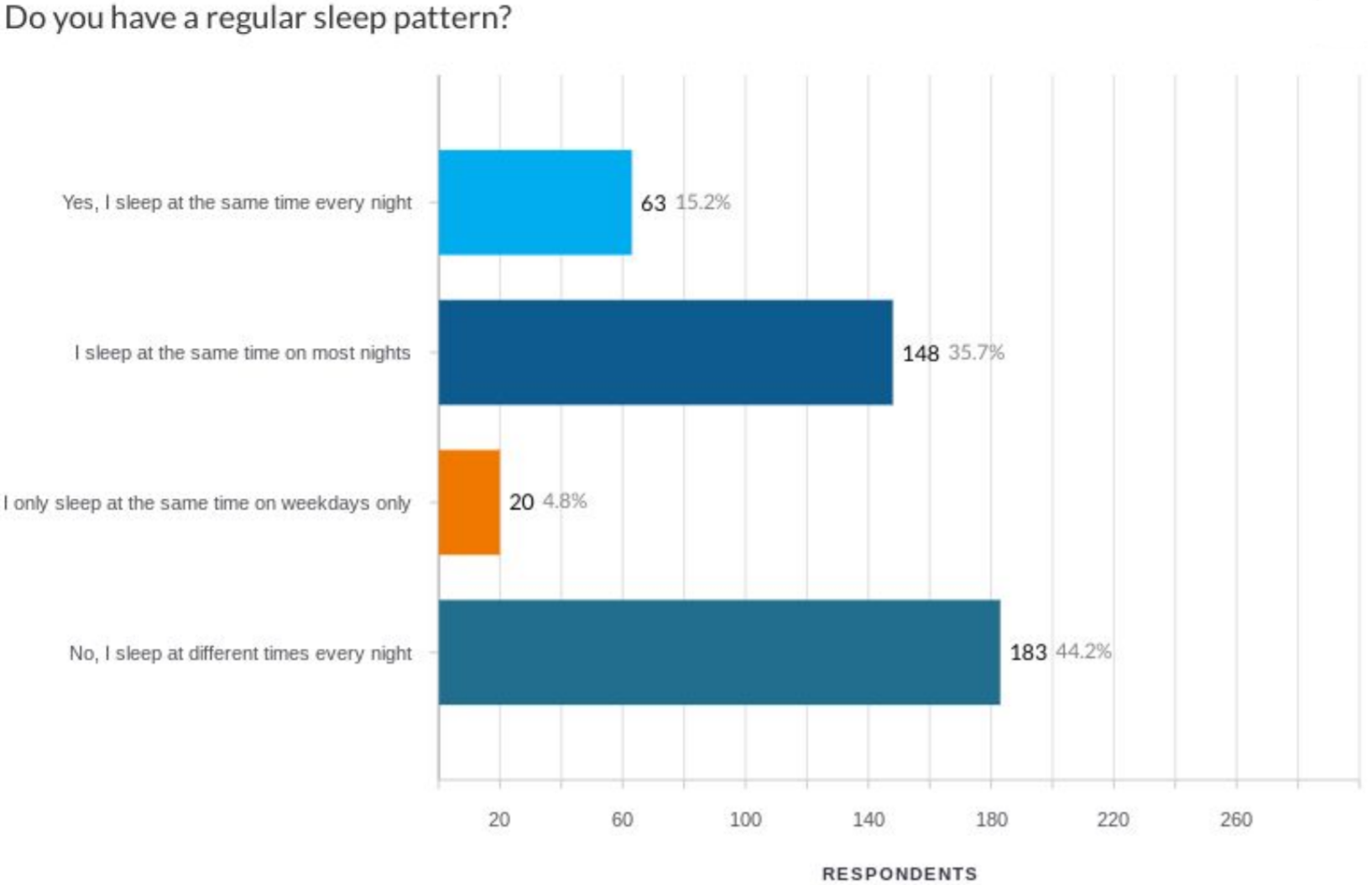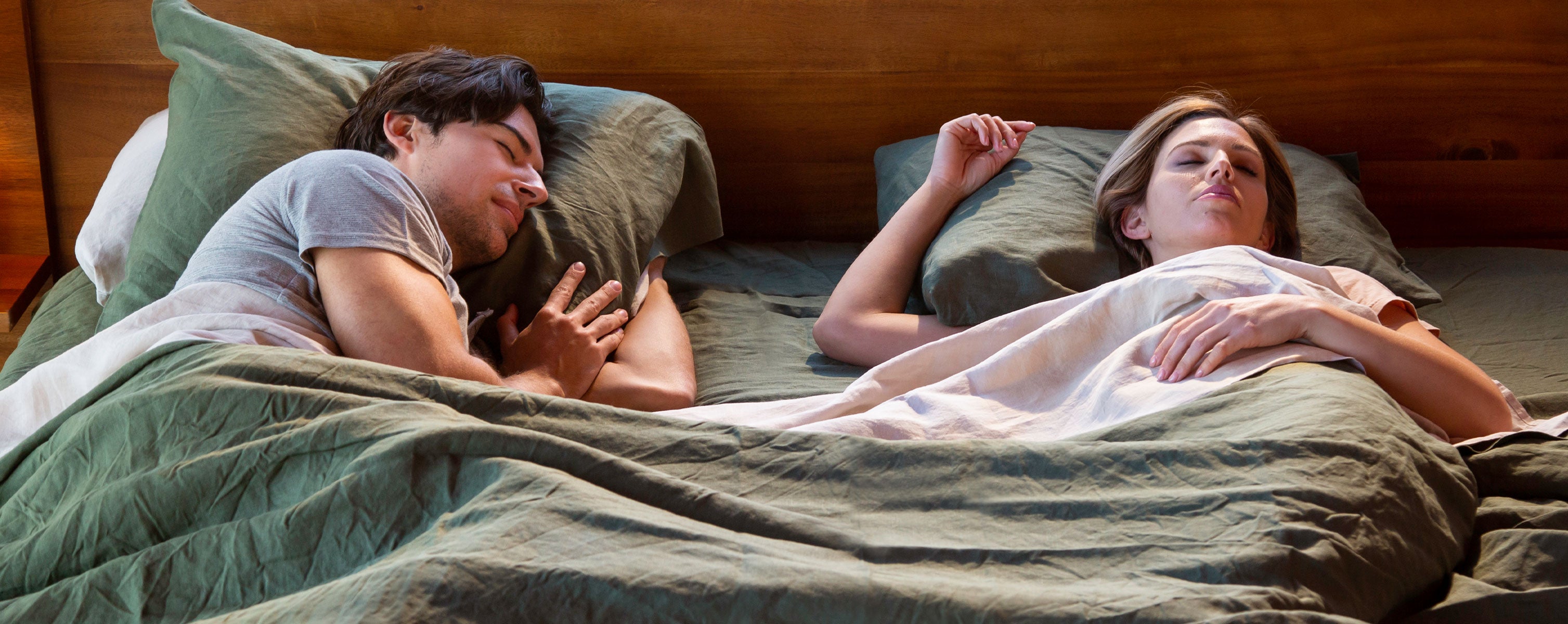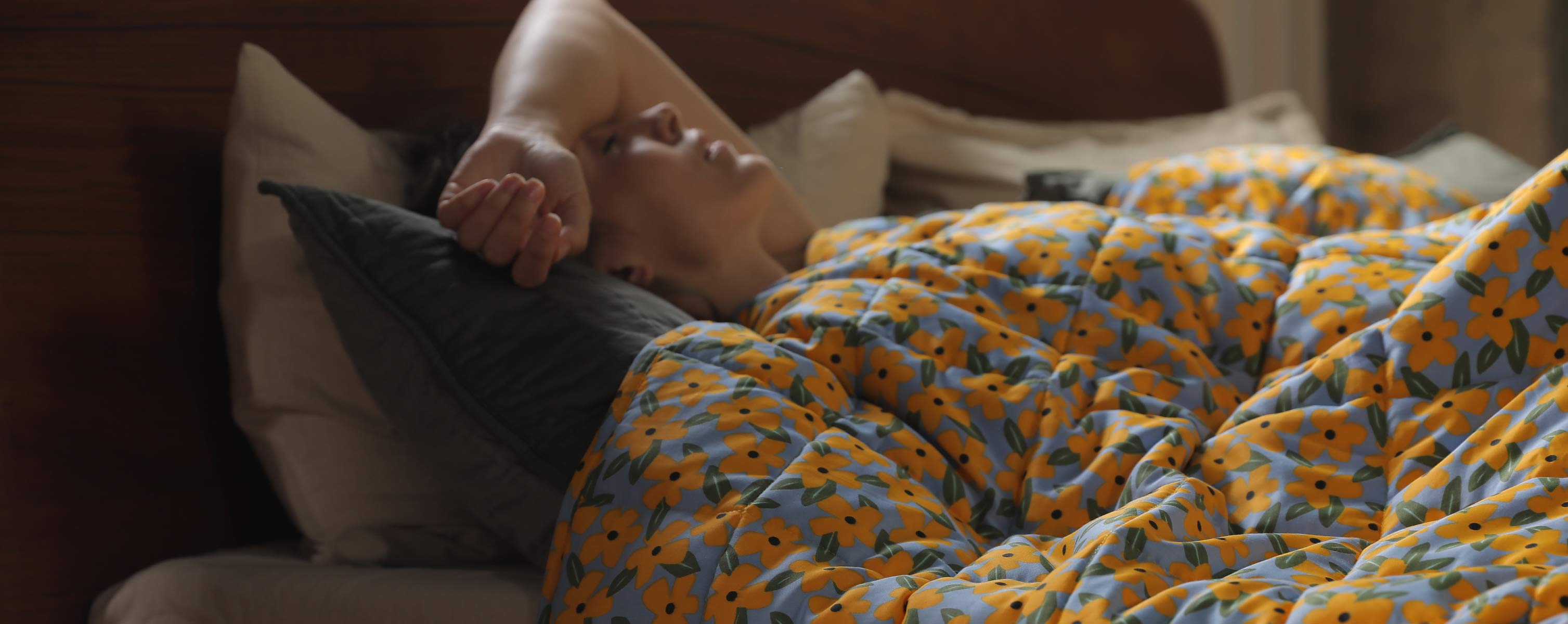You need about 30 - 60 minutes to get to sleep
The overwhelming majority of us take an average of 30 minutes to 1 hour before we can fall asleep. In fact, of all the participants who answered our survey, only 52 people suggested they can sleep within 30 minutes!
These numbers are staggering. A lot of time is just spent tossing and turning, waiting for the moment we eventually fall into a slumber. Accumulated over an entire week, that’s around 7 hours spent laying on a mattress and waiting for our brain to shut off. Which is part of the problem

Stress, anxiety, depression, insomnia
These are the most common reasons for keeping us awake longer than we desire. Anxiety disorder and depression was the most common reason, followed by insomnia and sleep disorders.
With our minds occupied, it is understandable that so many of us stop using electronic devices, like our mobile phones, right when we decide to sleep.
Over half the participants indicated that this is where they’ll put electronics away, which is a well-known contributor to poor sleep quality, especially when a filter isn’t applied to dull the harsh blue lights. Most people don’t use sleeping aids
One of the more interesting findings from our survey is the numbers around the use of sleeping aids. Sleeping aids this is anything used to try to alter the state of one's mind. This includes sleeping pills and supplements, music/relaxation sounds, Weighted Blankets, and more.
However, over half of the participants (252) have never used any to help them sleep! 90 people responded that they had tried them but to no avail. Whereas 98 people responded they actively use them.




It is common not to have a regular bedtime
It turns out it is also pretty common to have irregular sleeping habits too when it comes to the time we decide to climb into bed. 183 people responded to having no dedicated bedtime, whereas only 63 indicated that they try to sleep simultaneously each night.
With respect to the hours we choose to sleep, the majority of us fall in between 21:00 - 01:00. Even then, 105 people indicated they often climb into bed after 01:00 each night too.
Compare the range of bedtimes to waking up, and it’s a different story. Most people are up and getting ready for work before 09:00, with even more waking up before 07:00 too.
All of which begins to paint a pretty unpleasant picture. It is common not to have a regular sleeping schedule, only to struggle to fall asleep within 30 minutes, only to wake up a dedicated hour to get ready for work.
It doesn’t get much better when it comes to the weekend, either. With so many of our commitments being pushed to the weekend once we have free time, it seems that it is just as difficult for us to catch up on a few additional hours to accommodate any lost hours during the week.


We suffer physical pains
Outside of mental conditions keeping us awake, a lot of us experience a range of physical pains too. From general body aches, arthritis, and restless leg syndrome, 343 people reported on these conditions as barriers to a seamless sleeping experience.
This isn’t out of the ordinary. As we grow older and our bodies begin to tire, these sorts of conditions are par for the course. There are ways to mitigate the pain, from general medication to a balanced exercise routine, but it’s hard to avoid these pains for all hours of the day.
Yet at the time of day when we need rest the most, they still prove to be an obstacle getting in the way of a good night’s rest.

We tend to wake up a lot in the middle of the night
This won’t come as a surprise. We seldom achieve a complete sleep cycle without disruption. With only 86 people indicating they tend to average most nights without waking up, we’re waking up as many as three times each night of the week for the rest of us!
This is normal for most people. Many of us will wake up during the night, especially if we are sensitive to noises or temperature fluctuations. It can be difficult to create the perfect sleeping environment, no less when we are sharing the bed with a partner. If not, then our bladder can get in the way, children might wake us up, our bodies are in our mind, or our mind is troubled with stress or anxiety.
What does all of this mean?

Summary of findings on poor sleep quality
Getting to the heart of these results doesn’t paint a great picture for those of us who struggle to sleep. Overall, we:
- Tend to have inconsistent bedtimes, yet wake up early each day at the same time for work
- Take longer than 30-minutes get to sleep
- Are troubled by various levels of stress, anxiety, depression, and general concerns which occupy our mind in the moments before sleeping
- Wake up constantly and seldom achieve a full night's sleep
- Tend to have an over-reliance on technology prior to sleeping, which makes it harder for our brains to switch off
- Often avoid sleeping aids, or have a lack of awareness of using them as a means to help us sleep
- Tend to get around 4 to 6 hours of sleep on average
All of which brings us to the head of this article. When it is clear how so many of us struggle with getting a full rest each night, sleeping aids can make the difference, which is where our Weighted Blankets come in.
Constructed using layers of premium fabric, with pockets stuffed full of micro glass beads, this creates a unique sleeping experience unlike any other. The blanket contours to the shape of your body, applying an evenly distributed weight that creates a hugging sensation.
This feeling of being hugged helps to release chemicals in your brain to help soothe and relax you. This can lower your heart rate, slow your mind, and get you in a better condition for sleeping, where you can stay asleep for longer and wake feeling recovered.
From our 100% cotton fabric to our cooling bamboo viscose fabric, there are colors and designs to suit everyone. You can pick up yours through the link below.












